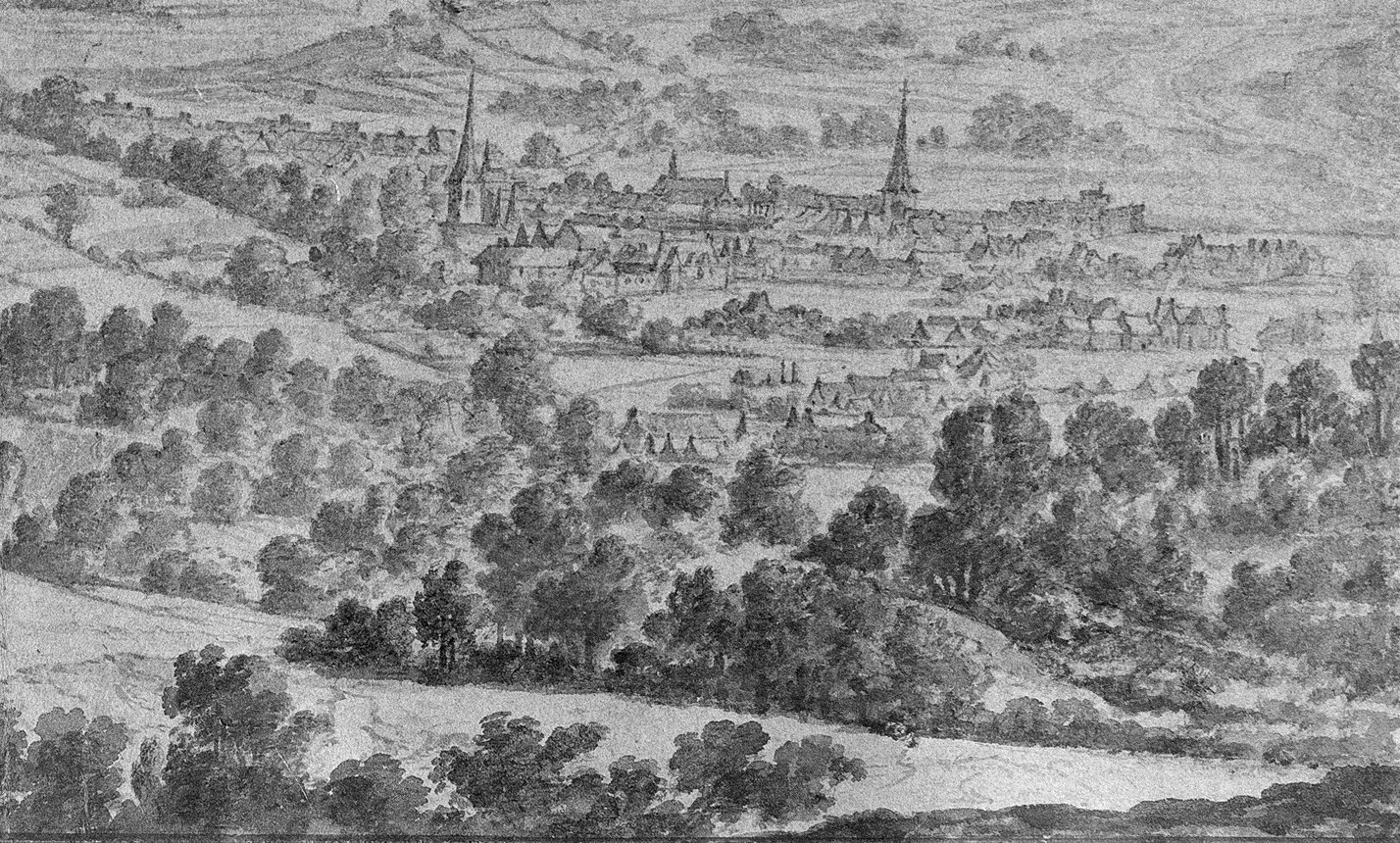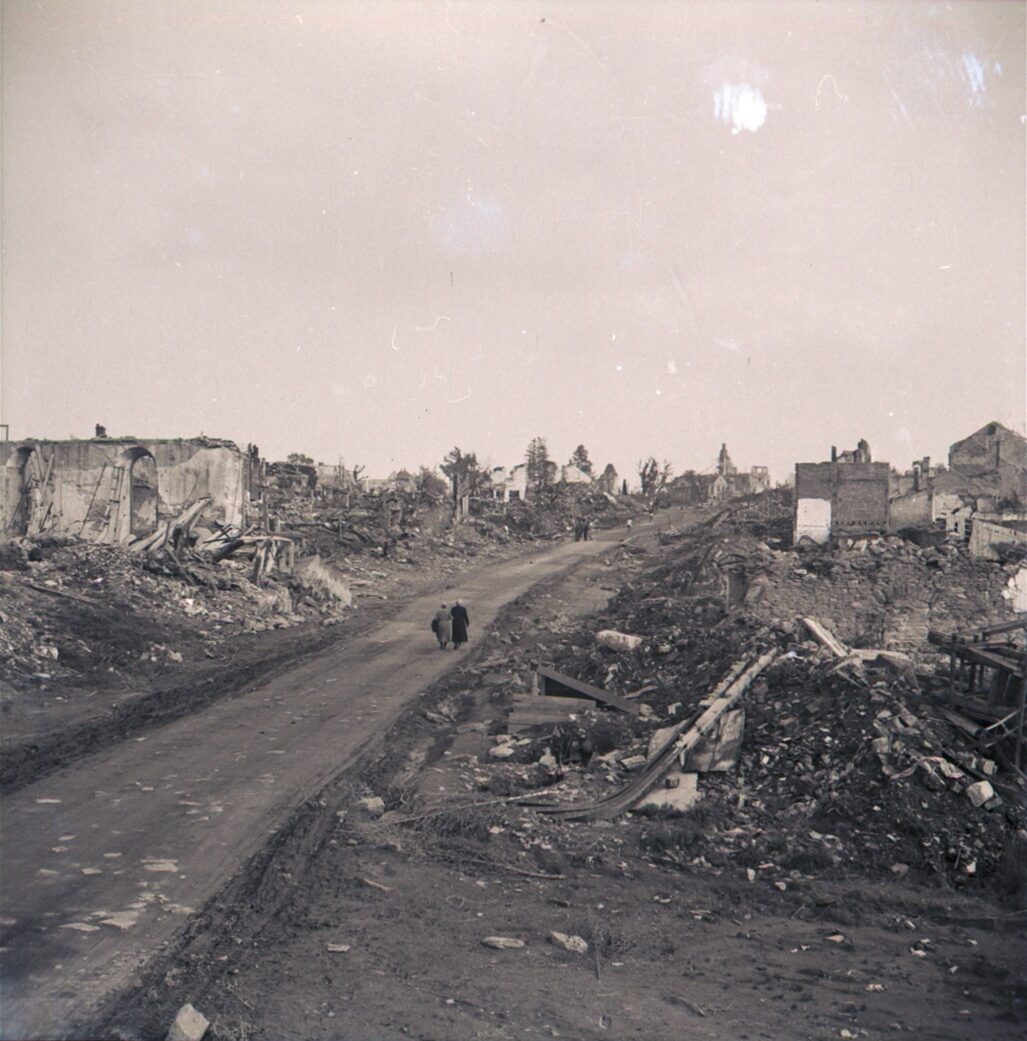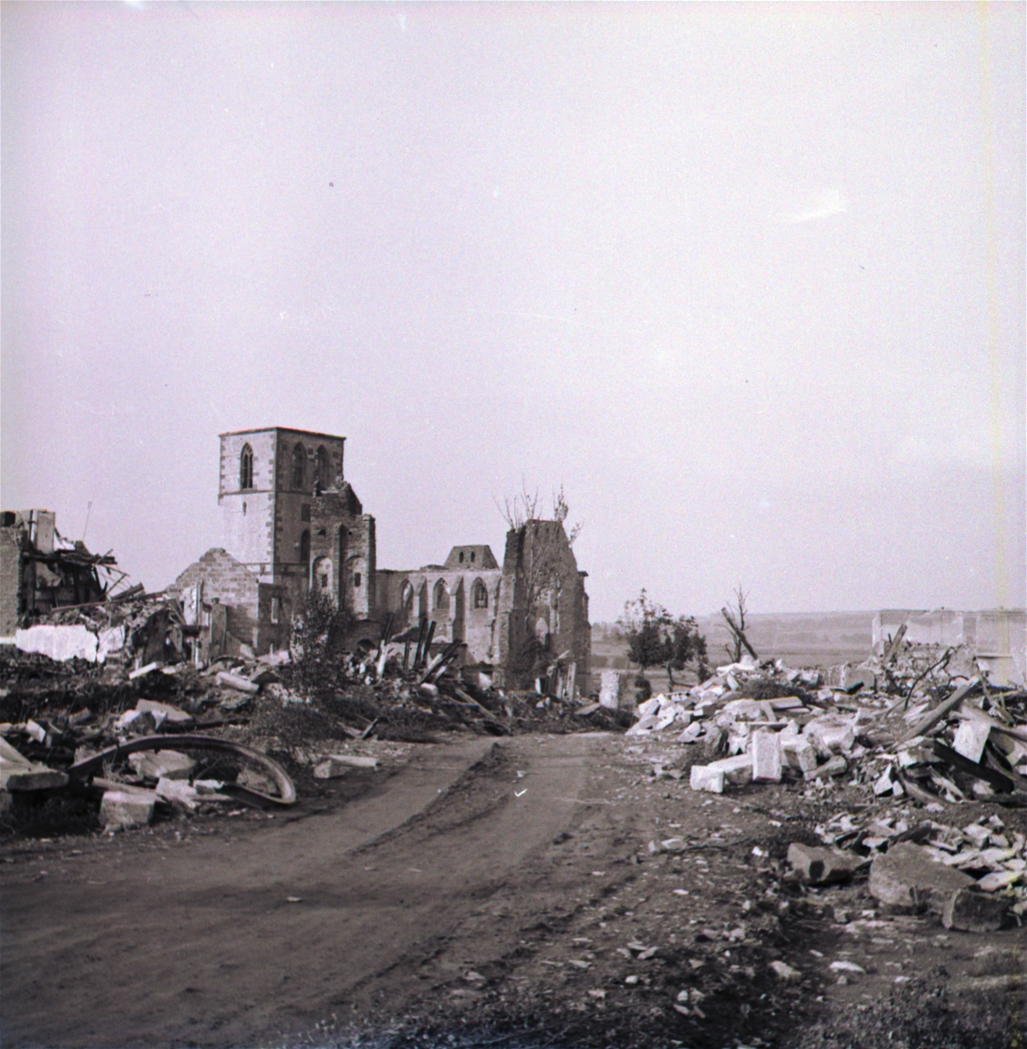The Battle of the Bulge is one of those rare cross-border sites of memory. The cities and towns of Saint Vith, Malmedy, Büllingen, Rocherath, Recht, Faymonville, Bastogne, Houffalize, Prüm, Winterspelt, Clerf or Vianden all share a common fate. They were (almost) completely destroyed during the Battle of the Bulge. Although the inhabitants of the entire region became victims of the Second World War, the communicative memory of events in German- and French-speaking Belgium, in Luxembourg as well as in Germany is quite different.
Especially in the Belgian Eifel, the Ardennes Offensive memorial says a lot about the inhabitants of the area. Large parts of the area were destroyed during the events of the last winter of the war in 1944/45. The population was evacuated or fled from the hostilities to Belgium or Germany, in what is known locally as ‘Großer Treck’ (‘Great Trek’, not to be confused with the Great Trek of Dutch-speaking settlers out of Cape Colony to the interior of contemporary South Africa from 1836 on).
The Battle of the Bulge was an ideal starting point for the inhabitants of the Belgian Eifel to build up a dominant memory as victims, which at the same time covered up undesirable aspects. What happened during the Battle of the Bulge, along with the suffering experienced together, could be talked about in an unbiased way. The Battle of the Bulge enabled to forget the events of the inter-war period, along with the turmoil it entailed among the population. The fact that many people had hoped – and looked forward to – annexation by Germany could be generously overlooked, along with the acceptance of a dictatorial, National Socialist state of injustice, which was the inevitable result.
This is also the context in which the topos of ‘forced soldiers’ (ie the drafting of East Belgians into the German Wehrmacht emerged): although there were no differences between the German Wehrmacht soldiers and most of the drafted East Belgians, the Battle of the Bulge suppressed an emergence of the discussion about forced entry into the Wehrmacht. The Ardennes Offensive took on a very similar function in the north of Luxembourg.
Although the reconstruction of the region followed different patterns, it nevertheless played an important role for the Ardennes Offensive as a site of memory: the reconstruction overlapped the events of the Second World War for several years and also physically fed memory from the destruction and the suffering experienced as a result of the Ardennes Offensive.
Thus, monuments, memorial tours, military cemeteries or novels contribute to keeping the memory of the Battle of the Bulge alive. In no way should the significance of the events to be diminished. Thousands of civilians and tens of thousands of regular troops fell victim to the offensive on both sides of the border, not to mention the immeasurable psychological suffering. But the Ardennes Offensive as a site of memory also reveals how selective the way Eastern Belgians look back on their own history can be. Just like elsewhere, the more convenient events and interpretations thereof feed communicative memory in East Belgium, at the cost of taking less welcome historical facts into account.
Lesetipps
Carlo Lejeune & Christoph Brüll, Geschichtsschreibung als Spiegel des Zeitgeistes. From the appropriation of history to the Europeanisation of memory culture, in Carlo Lejeune, Christoph Brüll & Peter Quadflieg (eds.), Grenzerfahrungen. Eine Geschichte der Deutschsprachigen Gemeinschaft Belgiens (vol. 4), Staatenwechsel, Identitätskonflikte, Kriegserfahrungen (1919-1945), Eupen 2018, pp. 366-392.
Philippe Beck & Hubert Roland, Von den Schatten der Vergangenheit zu einer Ostbelgitude. Auseinandersetzungen mit Geschichte und Identität in der Literatur Ostbelgiens, in Tobias Dewes, Andreas Fickers & Vitus Sproten (eds.), Eine Geschichte der Deutschsprachigen Gemeinschaft Belgiens (Bd. 6, 1973–2023), Eupen 2023 (forthcoming).


